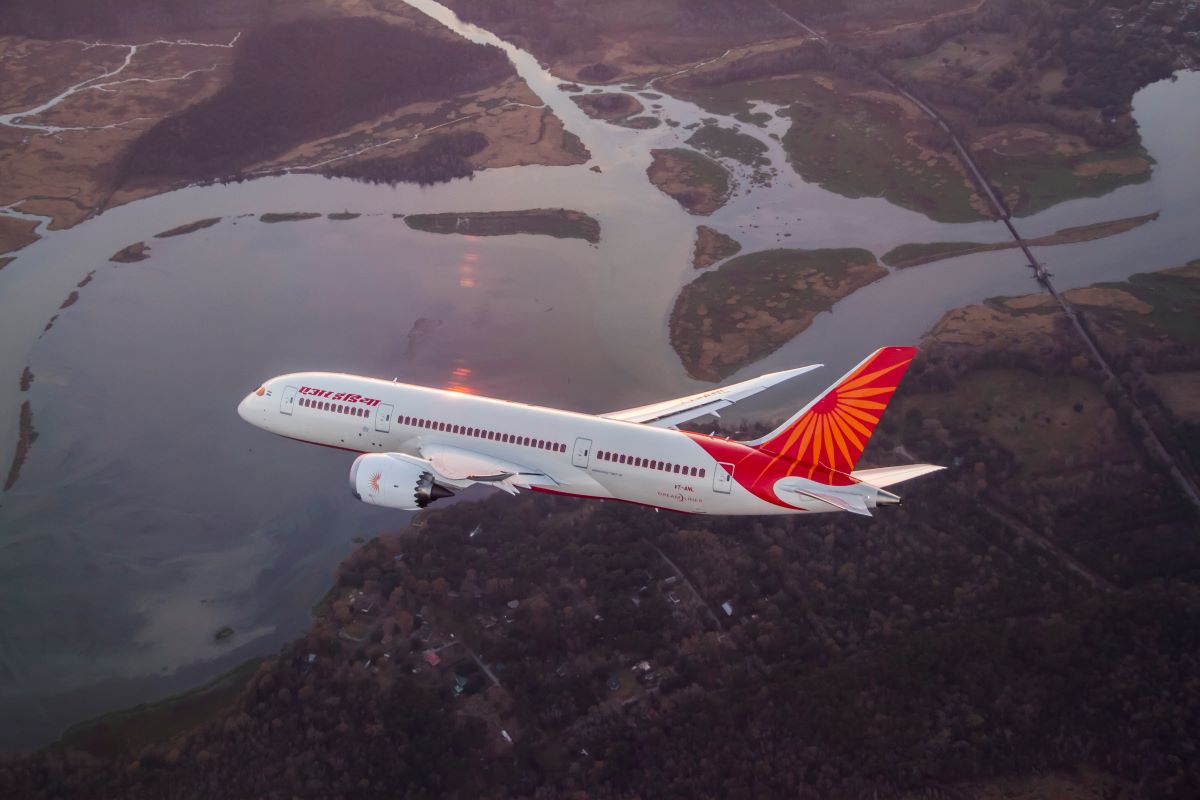Published on August 30, 2025
Travel chaos has gripped Asia, with 73 flights cancelled across multiple regions, affecting airlines like Air India, Korean Air, Qantas, and Air New Zealand. This widespread disruption spans several countries, including Australia, New Zealand, India, Thailand, and South Korea, leaving countless travelers stranded or delayed. From Sydney to New Delhi, passengers are facing severe inconvenience, with airports overcrowded and flight schedules in disarray. Australia and New Zealand have been hit particularly hard, while India, Thailand, and South Korea are also seeing the impact.
As these major carriers continue to grapple with the situation, travelers are urged to stay informed, check for updates, and remain flexible with their plans. The ripple effect of this chaos is far-reaching, affecting not only direct flights but also connecting services across Asia. Patience and communication with airlines will be essential in the coming days.
Advertisement
Advertisement
In total, the recent disruptions have led to 1,040 delayed flights and 73 cancellations across major international airlines. Affected passengers are urged to stay informed through airline websites and apps, as well as monitor local airport updates.
Affected Countries
The travel disruptions have affected passengers across a variety of countries, including Australia, New Zealand, Indonesia, India, Pakistan, South Korea, Thailand, Tibet, and Cambodia. These countries are home to major airlines and airports where delays and cancellations are being recorded.
Disrupted Airlines
The disruptions have been widespread across numerous airlines. Garuda Indonesia (GIA), Pakistan International Airlines (PIA), Korean Air (KAL), Tibet Airlines (TBA), and Thai Vietjet Air (TVJ) are some of the primary carriers affected by delays and cancellations. Akasa Air (AKJ), Cambodia Angkor Air (KHV), Air India (AIC), ANA Wings (AKX), Batik Air (BTK), Virgin Australia (VOZ), Air New Zealand, QantasLink (QLK), and Qantas (QFA) have also faced significant operational disruptions, affecting numerous flights and routes. These airlines have seen varying levels of impact, from minor delays to complete cancellations of certain services.
| Cancellation Count | Delay Count | Delay Percentage | Airline |
|---|---|---|---|
| 8 | 74 | 37% | QantasLink |
| 11 | 127 | 28% | Qantas |
| 20 | 178 | 43% | Air New Zealand |
| 7 | 182 | 49% | Virgin Australia |
| 7 | 131 | 48% | Batik Air |
| 6 | 23 | 26% | Pakistan International Airlines |
| 2 | 18 | 26% | Alliance Airlines |
| 1 | 90 | 22% | Korean Air |
| 1 | 67 | 31% | Tibet Airlines |
| 1 | 42 | 43% | Thai Vietjet Air |
| 2 | 11 | 5% | Akasa Air |
| 1 | 8 | 23% | Cambodia Angkor Air |
| 1 | 150 | 23% | Air India |
| 2 | 27 | 7% | ANA Wings |
| 4 | 29 | 24% | Spicejet |
Airports
The disruptions have affected a wide range of airports across different countries. In Australia, major airports such as Sydney Airport (SYD / YSSY), Melbourne Tullamarine Airport (MEL / YMML), Brisbane Airport (BNE / YBBN), and Perth Airport (PER / YPPH) have experienced significant delays. Regional airports like Adelaide Airport (ADL / YPAD), Halim Perdanakusuma International (HLP / WIHH), and Ballina/Byron Gateway Airport (BNK / YBNA) have also been impacted. Additionally, airports in New Zealand, including Auckland Airport (AKL / NZAA), Wellington International Airport (WLG / NZWN), Christchurch International Airport (CHC / NZCH), and Napier Airport (NPE / NZNR), have seen notable disruptions.
Advertisement

Advertisement
In Indonesia, airports like Soekarno-Hatta International Airport (CGK / WIII), Yogyakarta International Airport (YIA / WAHI), Juanda International Airport (SUB / WARR), and Sultan Hasanuddin International Airport (UPG / WAAA) have been affected by the delays and cancellations.
Thailand’s Suvarnabhumi Airport (BKK / VTBS) and Don Mueang International Airport (DMK) have also been impacted, with delays affecting both domestic and international travelers. Lastly, Cambodia’s Phnom Penh International Airport (PNH / VDPP), along with airports in Tibet like Lhasa Gonggar Airport (LXA / ZULS) and Yibin Airport (YBP / ZUYB), have experienced cancellations and delays affecting international connections.
In India, some of the major airports affected by the recent disruptions include Indira Gandhi International Airport (DEL / VIDP) in New Delhi, which is a major international gateway. Kuala Namu International Airport (KNO / WIMM) in Medan also plays a crucial role in connecting domestic and international passengers, while Sultan Hasanuddin International Airport (UPG / WAAA) in Makassar is an important regional airport in Indonesia. Additionally, Minangkabau International Airport (PDG / WIEE) in Padang and Juanda International Airport (SUB / WARR) in Surabaya are key domestic airports in Indonesia that are frequently serviced by both domestic and international flights.
In Pakistan, Jinnah International Airport (KHI / OPKC), Islamabad International Airport (ISB / OPIS), and Sukkur Airport (SKZ / OPSK) have been among the key hubs experiencing travel delays. Similarly, South Korea’s Incheon International Airport (ICN / RKSI) has seen disruptions, particularly affecting flights from Korean Air (KAL).
What Can Affected Passengers Do?
Passengers experiencing delays or cancellations are advised to immediately check with their airline for real-time updates. Airlines are likely to rebook affected passengers on alternate flights, but it is crucial to keep in mind that with such widespread disruption, this may take some time.
- Qantas passengers should expect substantial delays, especially on routes between Sydney and Melbourne, with a 28% to 37% delay rate. If you’re flying on these routes, consider alternate travel times or preparing for delays.
- Air New Zealand passengers, especially those flying to Wellington or Christchurch, should expect delays ranging from 22% to 43%, meaning it may be better to plan for extended waiting periods.
- Batik Air and Garuda Indonesia passengers flying from Jakarta or Yogyakarta to destinations within Indonesia may face significant delays or cancellations, particularly on flights affected by 73 cancellations throughout the network.
- Passengers flying with Korean Air or Thai Vietjet Air are likely to experience 22% to 43% delays, especially on routes to and from Asia and Australia. Travelers should be prepared for potential rebookings or longer wait times at airports like Incheon, Bangkok, or Melbourne.
Conclusion
In conclusion, the travel chaos caused by the cancellation of 73 flights across Asia has left travelers in a state of uncertainty. Airlines like Air India, Korean Air, Qantas, and Air New Zealand are struggling to manage the disruption that spans Australia, New Zealand, India, Thailand, and South Korea. Passengers are urged to stay vigilant and check for updates regularly as the situation evolves. Flexibility and communication with airlines will be key to navigating these disruptions. As air traffic management works to resolve the backlog, it’s essential for travelers to remain patient and prepared for possible delays or rescheduling in the coming days.
Source: FlightAware
Image Credit: Air India, Qantas
Advertisement
Advertisement
Tags: airline disruptions, Asia travel disruption, flight cancellations, travel impact across Asia
I want to receive travel news and trade event update from Travel And Tour World. I have read Travel And Tour World’sPrivacy Notice.
Saturday, August 30, 2025
Friday, August 29, 2025
Saturday, August 30, 2025
Saturday, August 30, 2025
Friday, August 29, 2025
Friday, August 29, 2025
Saturday, August 30, 2025
Saturday, August 30, 2025




